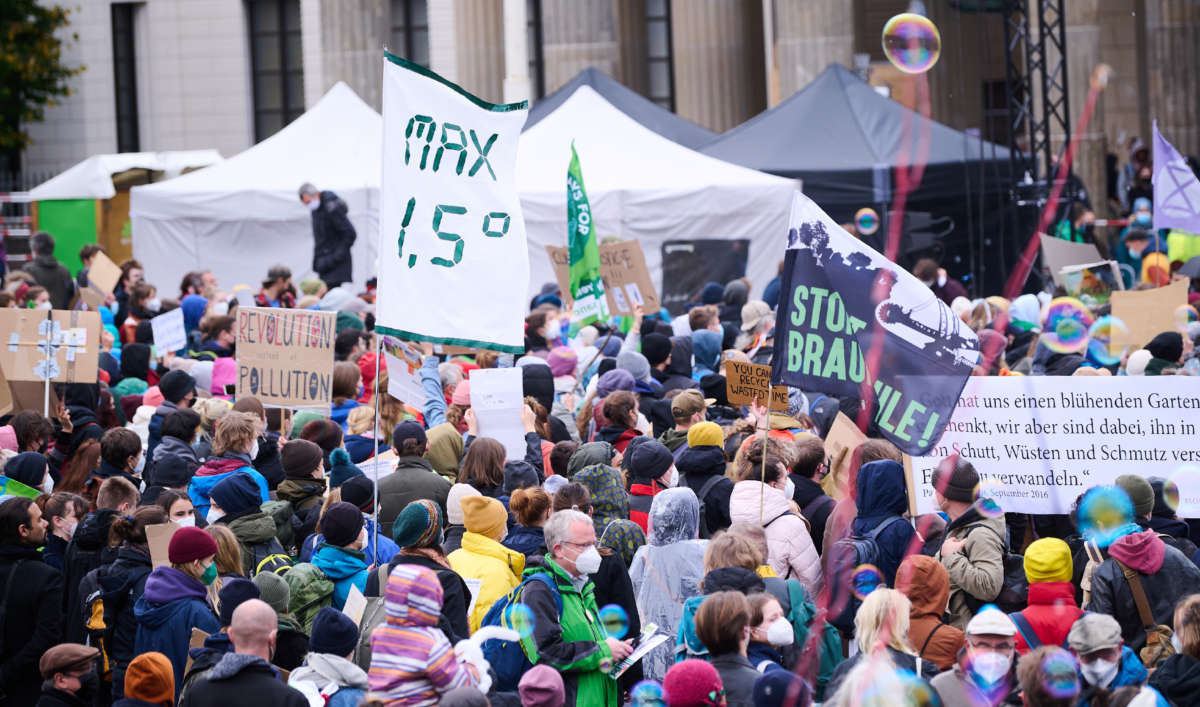As a global group of hundreds of scientists urged negotiators at COP26 to acknowledge the latest climate science by committing to “immediate, strong, rapid, sustained, and large-scale actions,” the head of the United Nations expressed pessimism Thursday that the talks will end with an agreement limiting warming to the key threshold of 1.5°C.
In an interview with The Associated Press a day before the summit is scheduled to end on Friday, U.N. Secretary-General António Guterres said the goal of capping temperature rise to 1.5 by the end of the century “is still on reach but on life support.”
Nevertheless, he added, “until the last moment, hope should be maintained.”
Guterres’ remarks came the same day a group of over 200 researchers released an open letter in which they frame COP26 as “a historic moment for the fate of climate, societies, and ecosystems.” The scientists said world leaders and negotiators must take into consideration the latest climate science in making decisions that will reverberate far into the future.
“We, climate scientists, stress that immediate, strong, rapid, sustained, and large-scale actions are necessary to hold global warming to well below 2°C and pursue efforts to limit it to 1.5°C, and thereby limit future risk and needs for adaptation over the next decades to centuries,” the group wrote.
The latest IPCC climate report “unequivocally shows the extent of human-induced climate change,” the scientists wrote, adding that “cumulative greenhouse gas emissions to date already commit our planet to key changes of the climate system affecting human society and marine and terrestrial ecosystems, some of which are irreversible for generations to come.”
The letter also points to a “rapidly shrinking” carbon budget to keep warming to 1.5°C as evidence of an “urgent need for a rapid and sustained decline of global emissions, under consideration of climate justice and equity.”
“Given the current yearly emissions of ca. 40GtCO2/yr, these remaining budgets would be exhausted by ca. 2027 to 2033 in the absence of marked decreases in emissions,” the group wrote. “This highlights the need for immediate reductions of CO2 emissions to achieve both the temperature goal of the Paris agreement and to also contribute to increased climate resilience.”
In a statement, Dr. Pep Canadell, executive director of the Global Carbon Project and one of the letter’s organizers, suggested COP26 negotiators should take the latest climate science assessment as their marching orders.
“The exceptional climate emergency we are living in requires equally exceptional national commitments and actions to bend down the trend of ever-accumulating greenhouse gas emissions in the atmosphere,” he said.
“With the well-established science on what needs to be done to stabilize the global climate,” added Canadell, “we have never been so well placed to make it happen: transform the science knowledge into commensurable actions, not words.”
Join us in defending the truth before it’s too late
The future of independent journalism is uncertain, and the consequences of losing it are too grave to ignore. To ensure Truthout remains safe, strong, and free, we need to raise $46,000 in the next 7 days. Every dollar raised goes directly toward the costs of producing news you can trust.
Please give what you can — because by supporting us with a tax-deductible donation, you’re not just preserving a source of news, you’re helping to safeguard what’s left of our democracy.
